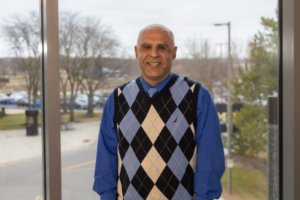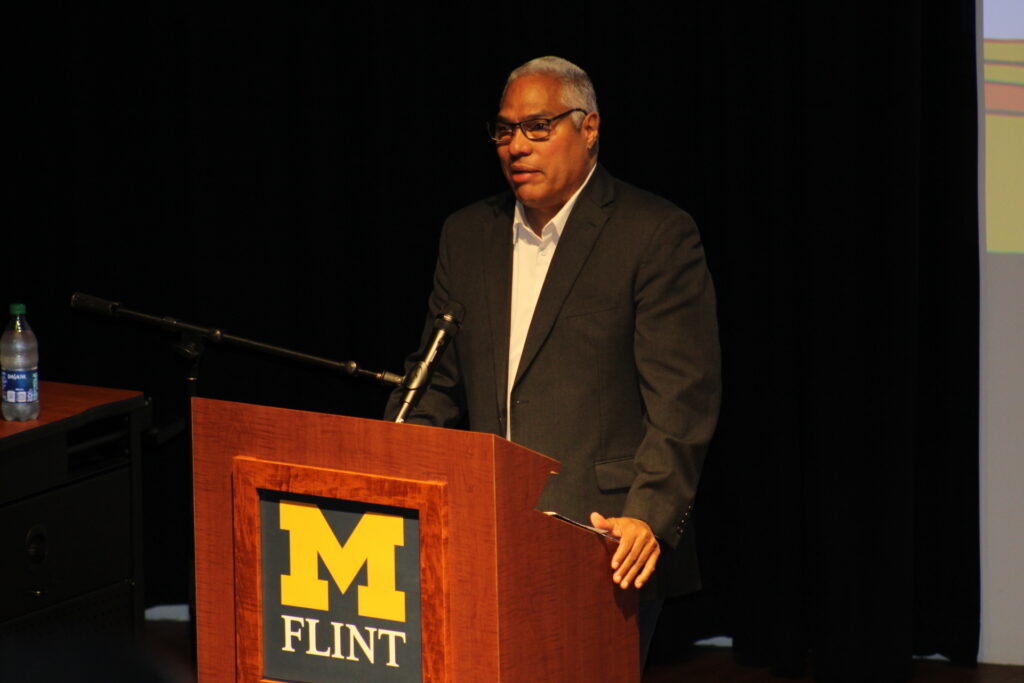
On April 11 2024, the Office of Diversity, Equity, and Inclusion partnered with the Urban Institute for Racial, Economic, and Environmental Justice at the University of Michigan-Flint for the third annual DEI/UIREEJ Spring Symposium. This symposium featured presentations from UIREEJ interns and keynote speaker Eduardo Bonilla-Silva.
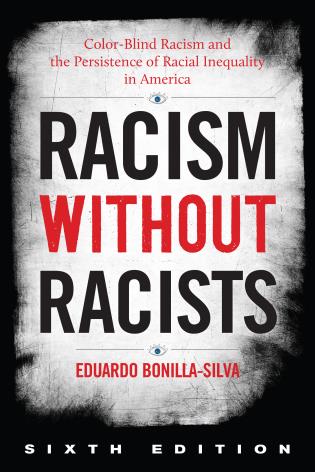
Bonilla-Silva is a well-known figure in the sociology profession, and his book “Racism Without Racists: Color-Blind Racism and the Persistence of Racial Inequality in America,” originally published in 2003, is regarded as a classic in the field. The book examines how systemic racism is embedded in American society, and how white people do not recognize the systemic nature of racial inequality. Currently in its sixth edition, published in 2022, the book includes chapters on the Obama presidency, the Trump presidency, the Black Lives Matter movement, and the COVID-19 pandemic, and how systemic and “color-blind” racism affected these events. The author also chronicles how readers can confront racism both in their personal lives and structurally.
In 2018, Bonilla-Silva was appointed president of the American Sociological Association, and is currently the James B. Duke Distinguished Professor of Sociology at Duke University. Additional publications by Bonilla-Silva include “White Supremacy and Racism in the Post-Civil Rights Era,” and “Racism Without Racists: Color-Blind Racism and the Persistence of Racial Inequality in the United States.” He co-authored “White Out: The Continuing Significance of Racism” with Ashley Doane in 2003, “White Logic, White Methods: Racism and Methodology,” with Tukufu Zuberi in 2008, and “State of White Supremacy: Racism, Governance, and the United States,” with Moon Kie Jung and João H. Costa Vargas in 2011. These books have earned him multiple Oliver Cox and Choice awards.
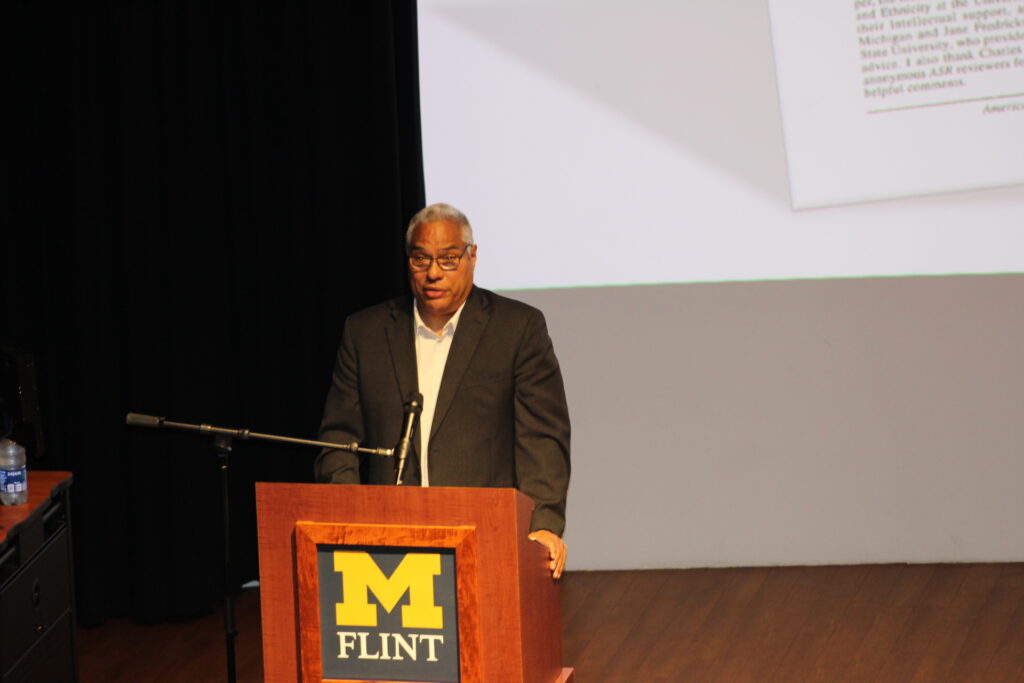
During his presentation, Bonilla-Silva talked about what systemic racism is, the new kinds of racism that are emerging, color blind racism, and historically white colleges and universities (or HWCUs). To start, he remarked that most of the time when people think about racism they think of the KKK or other extremist groups, but that by focusing on these individuals and their attitudes, you miss the collective nature of racial behavior. He argued that by focusing on overt behavior, you can miss covert and unconscious racism. Bonilla-Silva discussed how good racism theories should focus on all factors, covert and overt, and that they need to account for individuals, social subjectivity, and racial structures.
The rest of his talk focused on what he describes as the new racism, which is more covert. He refers to it as “smiling discrimination”. People will instead find more subtle ways to make racist remarks without overtly mentioning people of color. Examples of this include avoidance of racial terminology, such as clothes typically worn by black people being called “urban” clothes. He goes on to discuss how racial agendas deliberately avoid racial directness. He says that the invisibility of these mechanisms reproduce racial inequality, and that even when people film things like police brutality, it doesn’t decrease the violence.
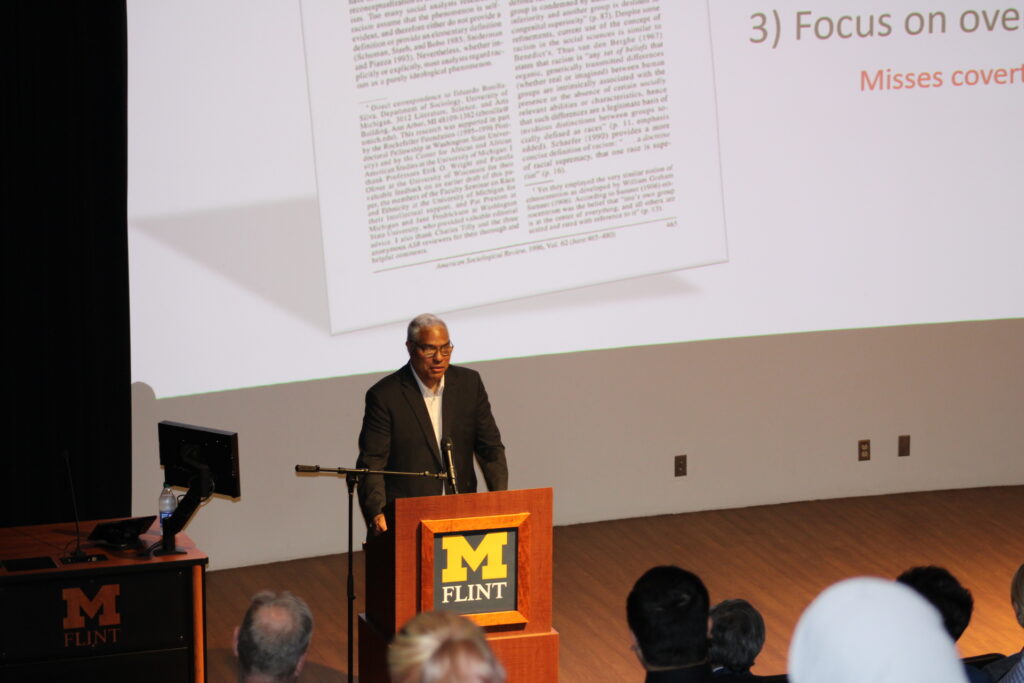
When talking about color blind racism, he defines it as “a new dominant racial ideology that uses liberalism to furnish non-racial explanations for race-based issues.” This is to say that by claiming to “not see color”, people are deliberately ignoring the role that race plays in the structure of our country and the systems in place to keep down people of color, and that by denying this has nothing to do with race, you are still being racist, it’s just a new form of racism.
At the end of his presentation, he talked about HWCUs, or Historically White Colleges and Universities. He argued that many of that these public institutions have structures and cultures that “exude and exalt whiteness.” He added that (consciously or not) white people are trained into whiteness, and are built to expect it by having white people foods, buildings named after white people, and white depictions of beauty. Even the curriculums use white logic, and college life is centered around whiteness. White people learn whiteness by being taught to ask questions like “Where do you live?” and “Who are your friends?”.
He states that white people who do nothing to stop racism, play into a racist system. That since the system is made for white people, they’re often blind to its discrimination. He says that there’s not just one thing you can do to address this, but that the most important thing you can do is listen to people of color and what they’re telling you. Most importantly white people should recognize racial historical legacies and their contemporary expressions, and that to effectively change those structures the culture must first address the ambivalence of many white people who overlook the subtle racism and racist structures.




